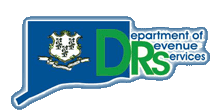Corporation Business Tax - FAQs
Filing Requirements
Who is required to file a Connecticut Corporation Business Tax Return?
C corporations that carry on or have the right to carry on business in Connecticut are required to file a Connecticut Corporation Business Tax Return.
My corporation is located out of state. Am I required to file a Corporation Business Tax Return if it is registered with the Connecticut Secretary of the State for authority to conduct business in Connecticut?
Yes. When an out-of-state C corporation obtains a certificate of authority to conduct business in Connecticut from the Secretary of the State, it is subject to the Corporation Business Tax. More
After completing a Certificate of Dissolution with the Connecticut Secretary of the State, what forms do I need to file with the DRS?
There is no form for this specific purpose. Check the “Final return” box on the final Corporation Business Tax Return to notify the Department.
If you have questions or concerns, contact DRS at 860-297-5962, or write to us at:
Department of Revenue Services
Attn: Registration Team
450 Columbus Blvd, Suite 1
Hartford, CT 06103-1837
Tax Due Dates and Extensions
When is the Corporation Business Tax return due?
Your Connecticut return is due on the fifteenth day of the month following the due date of the federal return. The due date generally will be the fifteenth day of the fifth month after the end of your corporation’s year. For example, if your corporation has a December 31st year end, the return is due on May 15th.
Exception for June 30th year ends: If your corporation has a June 30th year end, the return is due on October 15th.
How much time will be granted to file with an appropriate extension request?
Requests that are granted will receive a 6 month extension, except for those with a June 30th year end can receive a 7 month filing extension.
| Original Due Date | Extended Due Date | |
| Anything except June 30 | 15th day of 5th month after year end | 15th day of 11th month after year end |
| June 30 | 15th day of 4th month after year end | 15th day of 11th month after year end |
I made a Corporation Business Tax Extension payment on the TSC before the due date. Do I still have to file the form or is the payment sufficient to get the extension approved?
Payment is not sufficient; you must timely file Form CT-1120 EXT, Application for Extension of Time to File Corporation Business Tax Return, in order to receive an extension.
Payments
When is a corporation required to make estimated tax payments?
If your corporation’s tax liability, after credits, is more than $1,000, you must make quarterly estimated payments. Estimated payments are due on the 15th day of the 3rd,
6th, 9th and 12th months of the year (March, June, September and December if your corporation has a December 31st year end).
How do I file and make estimated payments?
All Corporation Business Tax estimated tax payments must be filed and paid electronically. To file and pay estimated taxes electronically, visit the Taxpayer Service Center (TSC).
For more Electronic Filing and Paying information please review IP 2017(15), Filing and Paying Connecticut Taxes Electronically.
Which member of the Combined Unitary return should make estimated payments?
The designated taxable member is responsible for making payments on behalf of the group. Even though the designated taxable member is responsible for paying on behalf of the combined group, each taxable member is jointly and severally liable for the tax due.
How is the designated taxable member determined?
The combined group must select a designated taxable member. If the common parent is a taxable member in the combined group, it must be the designated taxable member. Otherwise, any taxable member may be selected.
If a combined group fails to select a designated taxable member, DRS will select it for the group. The Commissioner is authorized, in his discretion, to disregard the designated taxable member selected by the combined group and select a different member. However, the Commissioner will only exercise this discretionary authority if he deems it to be administratively necessary.
A taxable member that wishes to act as the designated taxable member for a combined group does not have a Connecticut Tax Registration Number. How does the member obtain a Connecticut Tax Registration Number?
Every taxable member, including the designated taxable member, must have a Connecticut Tax Registration Number to file Form CT-1120CU. If a taxable member, including the designated taxable member, does not have a Connecticut Tax Registration Number, that company must apply for one through the DRS Taxpayer Service Center (TSC). On the TSC, click on the “Register your business” option and in the “Reason for Registering” section, select “Other” and in the text box, type “Registering a company to file Form CT-1120CU” and follow the instructions to complete the application. Allow ten business days for the application to be processed and the registration number to be mailed.
Please note that the designated taxable member of a combined group must be entered as a taxable member on Form CT-1120CU-MI, Combined Group Member Information.
If the parent company of a federal consolidated return is not included in the combined group or is a non-taxable member of the combined group (i.e., it does not have nexus in Connecticut), can one of the taxable members be selected to act as the designated taxable member of the combined group?
Yes, if the parent company of a federal consolidated return is not included in the combined group or is a non-taxable member (i.e., it does not have nexus in Connecticut), then the combined group must select one of the taxable members to act as the designated taxable member for the combined group. See Special Notice 2016(1), Combined Unitary Legislation for more information about selecting a designated taxable member and their responsibilities.

